A quick thread on what's happening in Haiti:
Hard to know where to begin, but let's pick 2019, the year Haiti was supposed to have parliamentary elections.
Hard to know where to begin, but let's pick 2019, the year Haiti was supposed to have parliamentary elections.
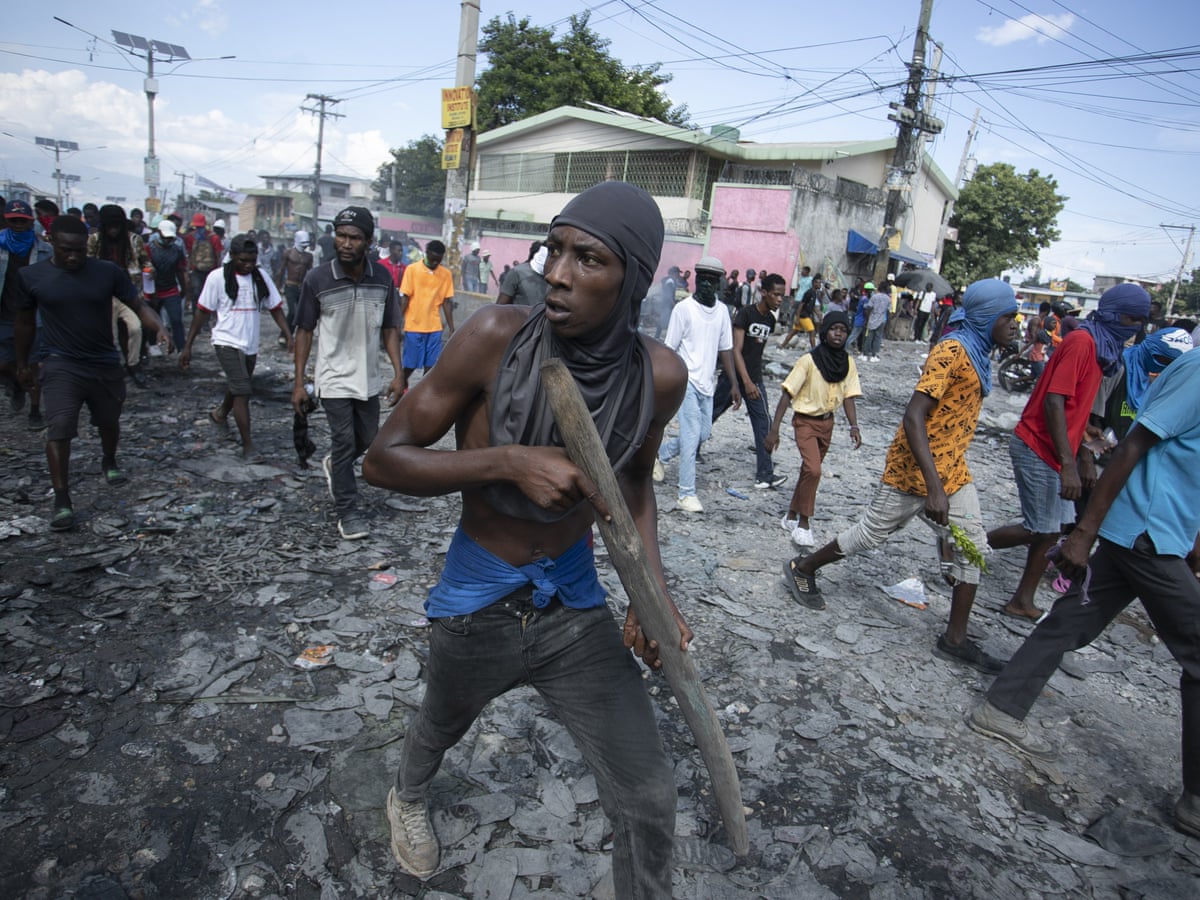
In 2019 President Jovenel Moïse was in power, after winning the Nov 2016 election, which saw just 21% of the population turn out to vote. The scheduled parliamentary elections for that year were delayed, a frequent occurrence in Haitian politics. 
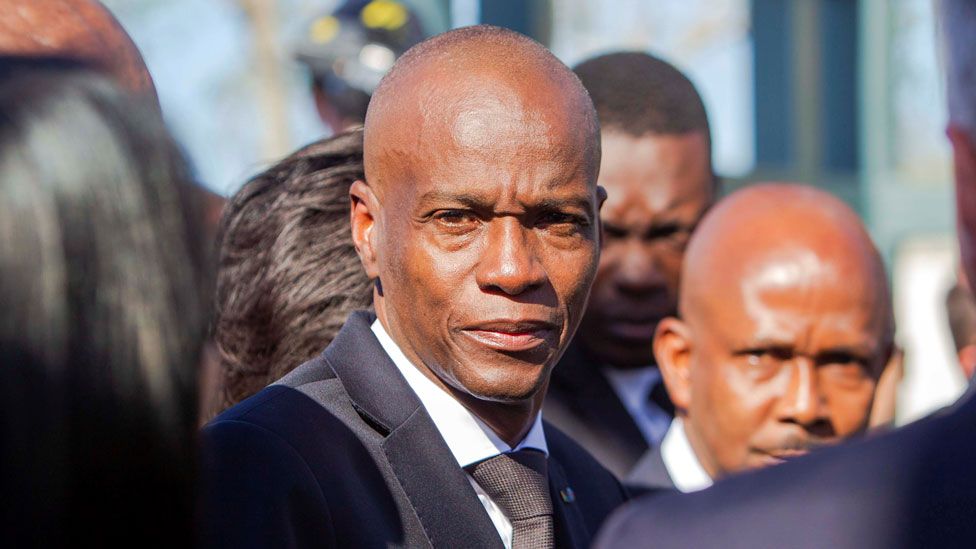
By 2020 this left Moïse governing almost alone, with just a rump legislature of senators. The deputies and even local official's terms had ended without new elections. Then Moïse was assassinated on July 7th 2021. 

In what seems to be a well publicised affair, a conspiracy between diaspora Haitians and Colombian mercenaries resulted in Moïse's residence being attacked. His bodyguards and security team were all unharmed 👀 

So the country turned to the appointed but unelected Prime Minister Ariel Henry, who assumed leadership after Moïse's death. The final blow came on Jan 10th 2023, when the remaining senators left office. There are now no elected officials running Haiti. 

Into the void came the gangs. Many outlets float the number 200, half of whom battle it out in Port-au-Prince. The two main gang alliances are the G9 an Fanmi e Alye, led by former cop Jimmy “Barbecue” Chérizier, and the GPèp la, led by Gabriel Jean Pierre - Ti Gabriel.








The G9 alliance looks focused on extortion, kidnapping and capturing public facilities, like electricity and water. In sept 2022 the G9 closed a fuel terminal, demanding amnesty and even seats in the Cabinet, protesting Henry's regime and the cutback to fuel subsidies.





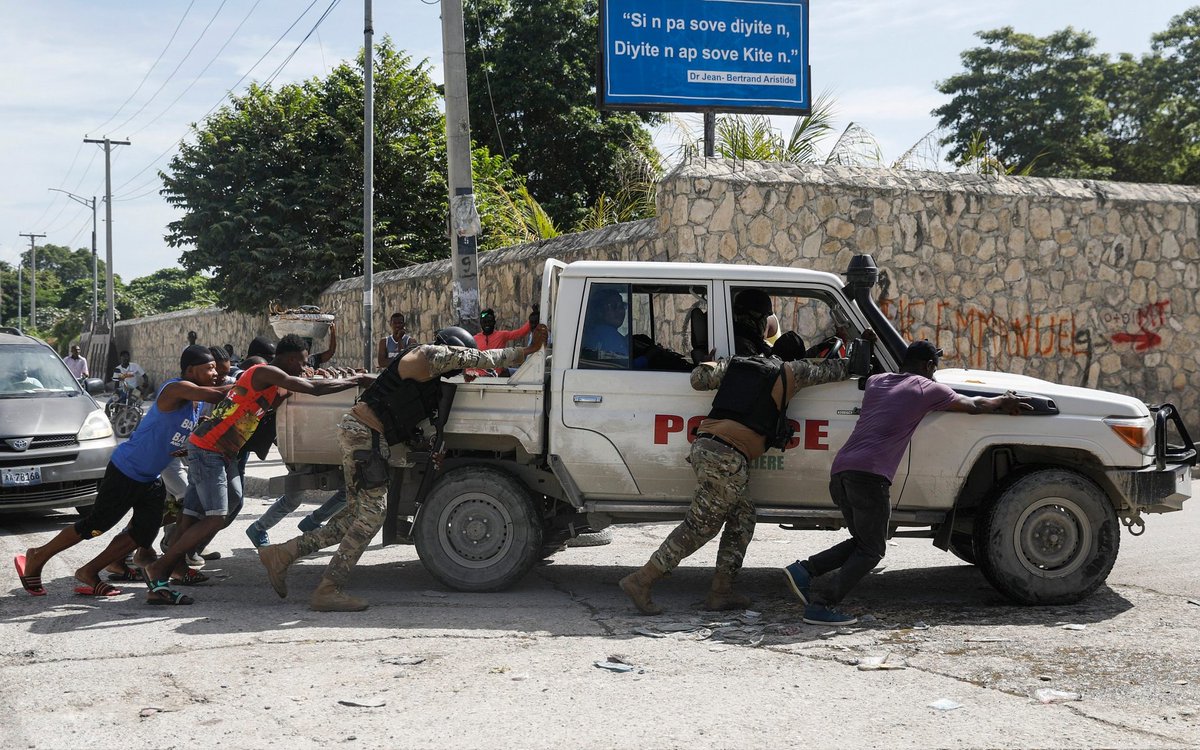
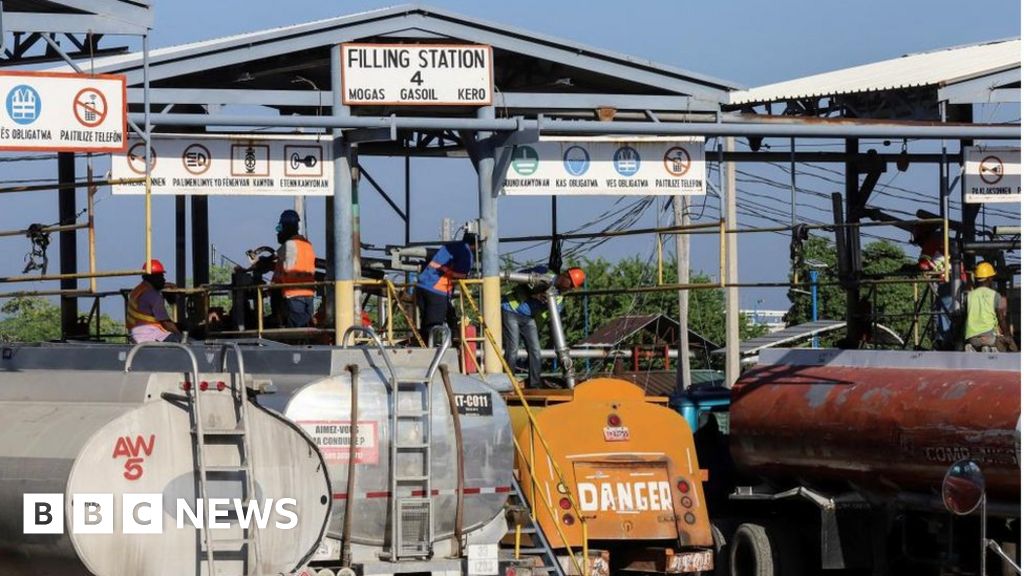

2022 also saw a battle over the notorious slum Cité Soleil, a G-PEP stronghold. With no water, electricity, food, sanitation or protection, the shanty town's thousands of unfortunates were trapped under constant gunfire.




Haiti is a failed state, no way around it. The army, disbanded in 1995 after decades of political interference, was re-established in 2017 and has possibly 500 recruits, for a country with over 11 million people. The police are riddled with corruption and gang connections.




In March inflation was at 49.3% and around 5 million Haitians were on the verge of starvation. Official figures for murders and kidnappings exist but they seem far too conservative for such an anarchic situation. 

Various NGOs and the UN report gang rapes, extortion, torture, ransoms, sniper attacks and general lawlessness across the country. Numerous videos of executions, beheadings, beatings and cannibalism have surfaced online. 

Just yesterday videos appeared showing Haitian police beating and stoning gang members before piling tyres on top of them and setting them on fire. 

Henry called for foreign intervention to help restore order to the country - the US and Canada seem unsurprisingly reluctant to engage. Kenya, Rwanda, Trinidad and Jamaica have either volunteered or been suggested, along with Brazil.



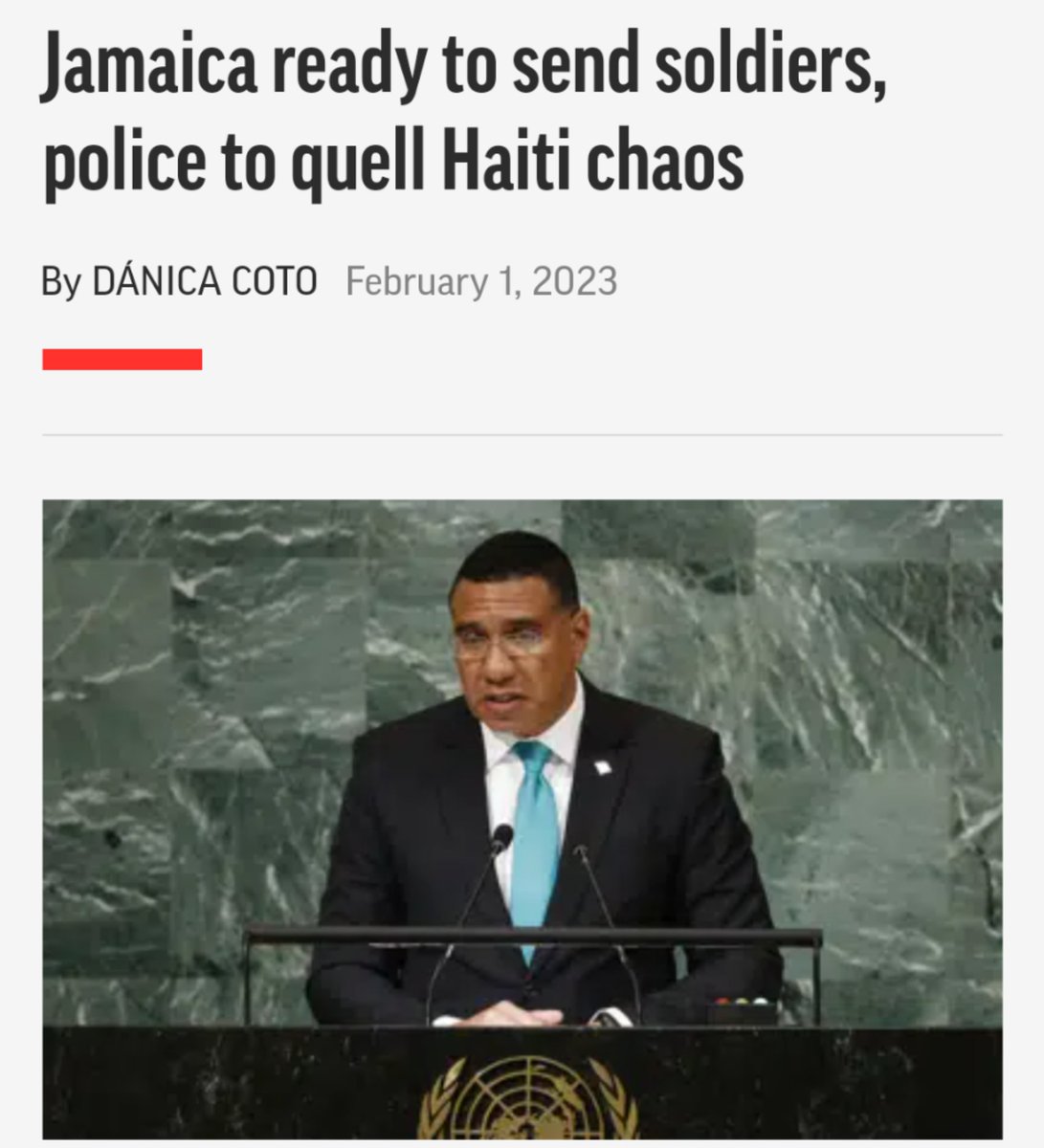
Exactly how and what the objectives of an intervention would be are unclear. The alternative power block - the Montana Group - is looking to unseat Henry and push for a 2yr transitional government under different interim leadership, and rejects military intervention. 
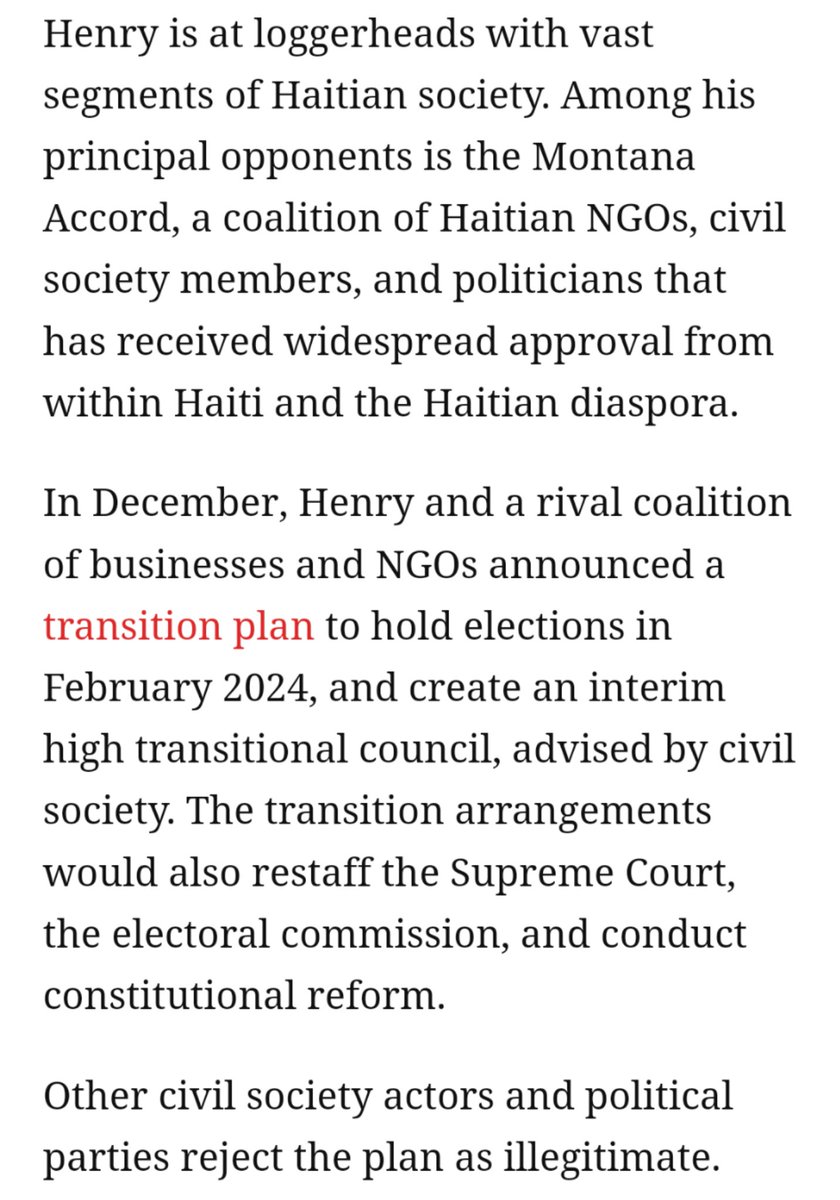
It's hard to imagine that any future Haitian govt would not make use of foreign powers, be they food distributing NGOs, educational charities, police trainers, special forces, military equipment or UN peacekeepers, despite their record. 
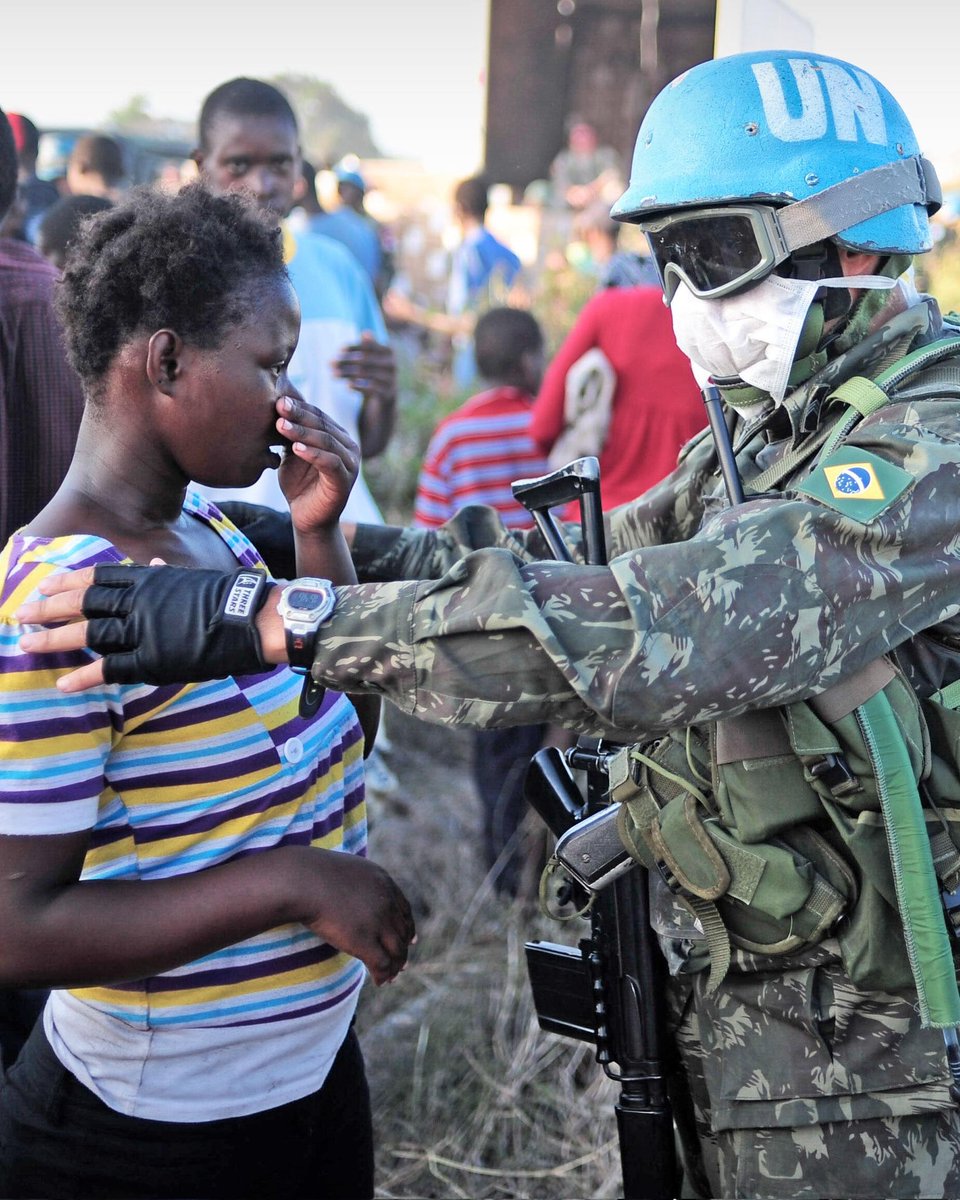
What are chances of foreign intervention do you think?
I also have other threads on overlooked Haitian history
https://twitter.com/Paracelsus1092/status/1528665265675837440?t=SPFpit8piBt74kK3CinCmg&s=19
• • •
Missing some Tweet in this thread? You can try to
force a refresh




































